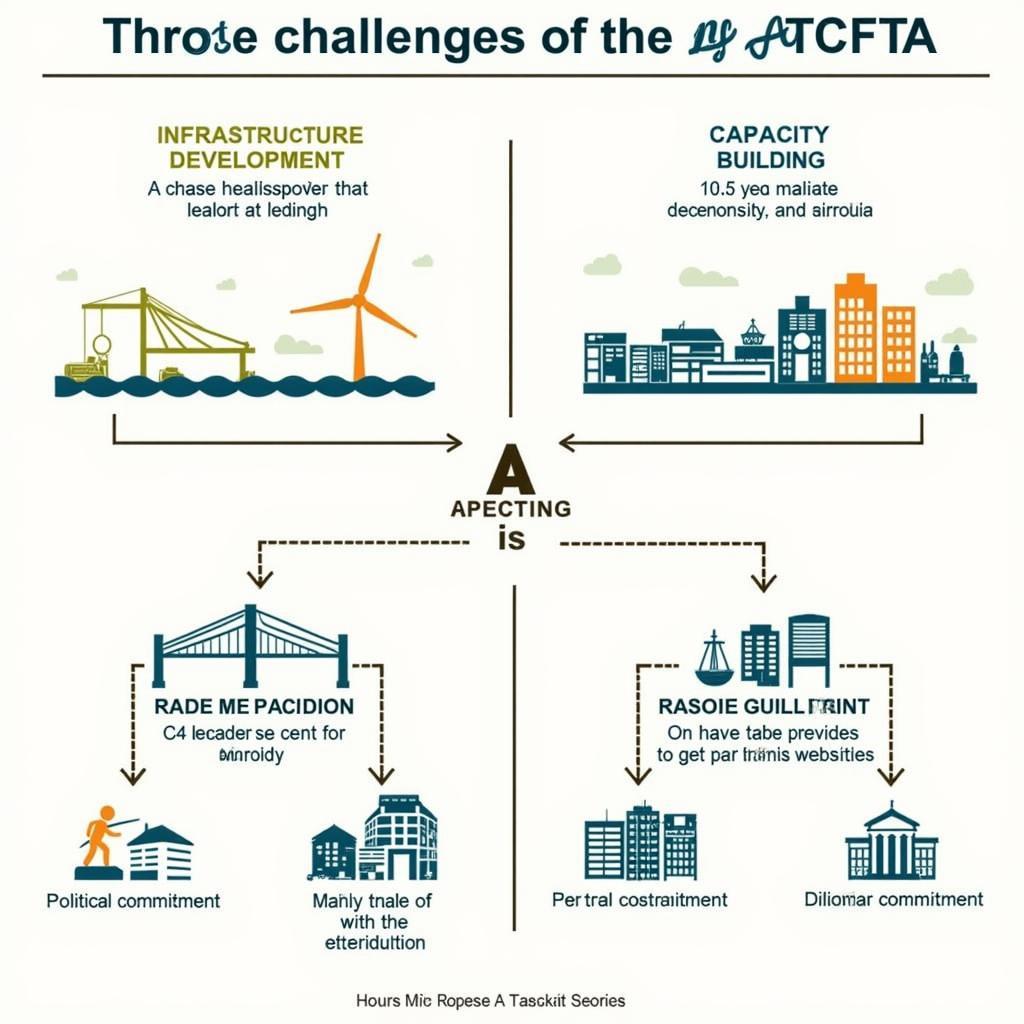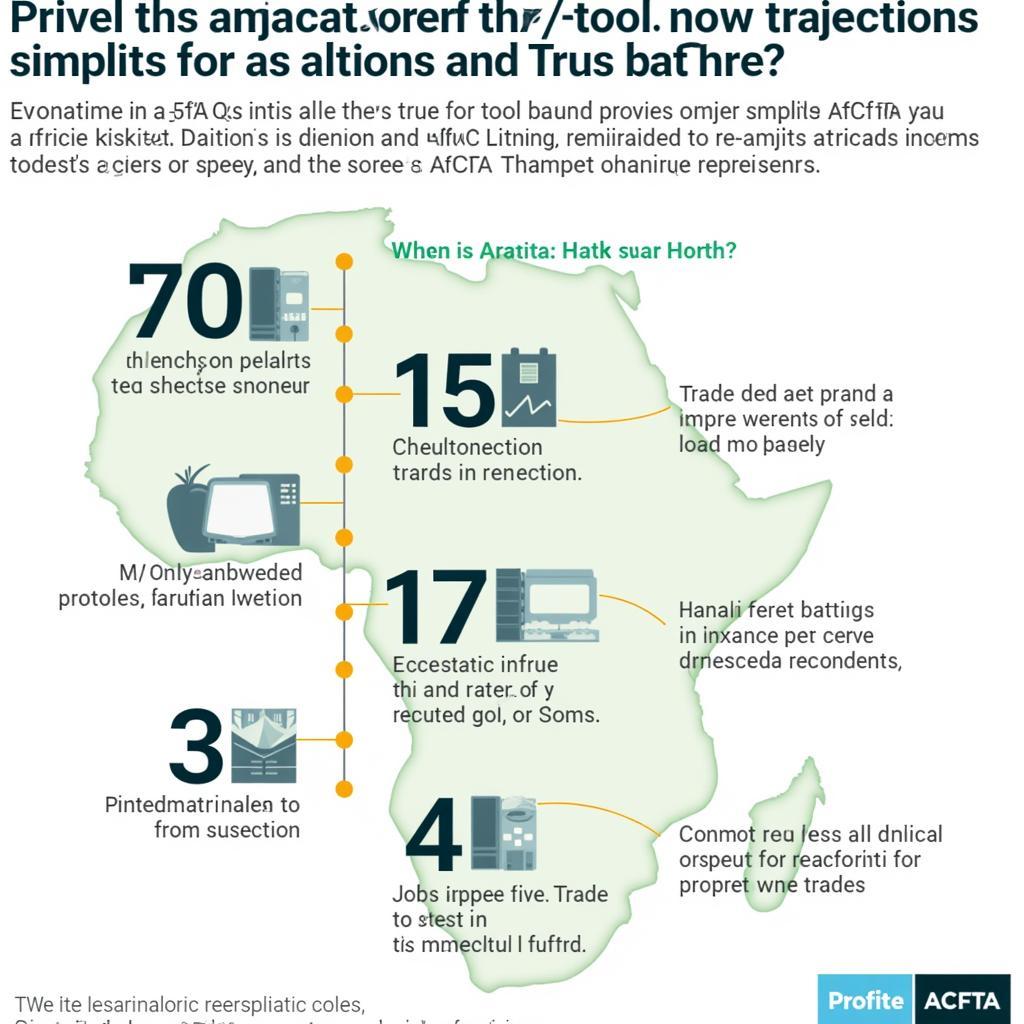Unlocking Africa’s Potential: A Deep Dive into the African Continental Free Trade Area (AfCFTA)
The African Continental Free Trade Area (AfCFTA) is poised to reshape the economic landscape of Africa. It promises to boost intra-African trade, stimulate industrial growth, and lift millions out of poverty. This comprehensive guide will explore the AfCFTA, its objectives, challenges, and the transformative potential it holds for the continent and the world.
Understanding the Significance of the African Continental FTA
The AfCFTA, signed in 2018 and launched in 2021, is the world’s largest free trade area by the number of participating countries, encompassing 54 of the 55 African Union member states. Its primary aim is to create a single continental market for goods and services, facilitating the free movement of people and investments. This ambitious agreement seeks to dismantle trade barriers, reduce tariffs, and streamline customs procedures, paving the way for enhanced economic integration across the African continent. african continental free trade area afcfta
This initiative represents a major step towards realizing the African Union’s Agenda 2063, which envisions “an integrated, prosperous and peaceful Africa, driven by its own citizens and representing a dynamic force in the global arena.” The AfCFTA has the potential to unlock significant economic gains for Africa, boosting intra-African trade, fostering industrialization, and creating much-needed jobs.
Key Objectives of the African Continental Free Trade Agreement
The AfCFTA has several key objectives, each contributing to the overarching goal of economic transformation and development. These include:
- Boosting Intra-African Trade: Currently, intra-African trade lags behind other regions. The AfCFTA aims to significantly increase trade within Africa by reducing tariffs and non-tariff barriers.
- Promoting Industrial Development: By creating a larger market, the AfCFTA aims to incentivize industrial development and value addition, moving beyond the export of raw materials.
- Creating Jobs and Reducing Poverty: Increased trade and industrialization are expected to create jobs and improve livelihoods, contributing to poverty reduction across the continent.
- Enhancing Competitiveness: By fostering a more integrated market, the AfCFTA aims to improve the competitiveness of African businesses on the global stage.
- Attracting Foreign Investment: A more stable and predictable trading environment is expected to attract greater foreign direct investment into Africa.
Challenges and Opportunities of the AfCFTA
While the AfCFTA presents significant opportunities, it also faces several challenges. Addressing these challenges is crucial to realizing the full potential of the agreement.
- Infrastructure Gaps: Inadequate infrastructure, including roads, railways, and ports, can hinder trade and increase costs.
- Non-Tariff Barriers: Non-tariff barriers, such as bureaucratic procedures and regulatory differences, can be significant obstacles to trade.
- Capacity Building: Building the capacity of African businesses and institutions to take advantage of the opportunities presented by the AfCFTA is essential.
- Political Will: Sustained political commitment from participating countries is crucial for the successful implementation of the AfCFTA.
 AfCFTA Challenges and Opportunities
AfCFTA Challenges and Opportunities
What is the African Continental Free Trade Area aiming to achieve?
The African Continental Free Trade Area aims to create a single continental market for goods and services, with free movement of business people and investment, paving the way for accelerating the establishment of the Continental Customs Union and the African customs union.
The Future of the African Continental FTA
The AfCFTA has the potential to be a game-changer for Africa, driving economic growth, creating jobs, and boosting regional integration. Its success will depend on the commitment of participating countries to overcome the challenges and implement the agreement effectively.
“The AfCFTA is not just a trade agreement; it’s a vision for a more integrated and prosperous Africa,” says Dr. Adebayo Adeoye, a leading economist specializing in African trade. “It’s an opportunity for the continent to harness its vast potential and take its rightful place on the global stage.”
african continental free trade agreement afcfta
Conclusion: The African Continental Free Trade Area’s Transformative Potential
The African Continental Free Trade Area (AfCFTA) is a historic agreement with the potential to transform the African economy. By breaking down trade barriers and fostering greater integration, the AfCFTA can unlock significant economic gains, create jobs, and improve the lives of millions of Africans. While challenges remain, the potential benefits are enormous, making the AfCFTA a crucial step towards a more prosperous and integrated Africa.
FAQ
- What is the African Continental Free Trade Area (AfCFTA)? The AfCFTA is a trade agreement among African countries to create a single continental market for goods and services.
- When did the AfCFTA start? The AfCFTA officially launched on January 1, 2021.
- How many countries are involved in the AfCFTA? 54 of the 55 African Union member states are part of the AfCFTA.
- What are the main goals of the AfCFTA? The main goals are to boost intra-African trade, promote industrial development, and create jobs.
- What are some of the challenges facing the AfCFTA? Challenges include infrastructure gaps, non-tariff barriers, and the need for capacity building.
- How can the AfCFTA benefit Africa? It can boost economic growth, reduce poverty, and enhance Africa’s global competitiveness.
- What is the future of the AfCFTA? The AfCFTA’s success hinges on overcoming challenges and continued commitment from member states.
 AfCFTA Impact on Africa
AfCFTA Impact on Africa
Further Reading: You can learn more about the African Continental Free Trade Area by reading our articles on african continental free t a.
For support, please contact us:
Phone: +255768904061
Email: [email protected]
Address: Mbarali DC Mawindi, Kangaga, Tanzania.
We have a 24/7 customer support team.


